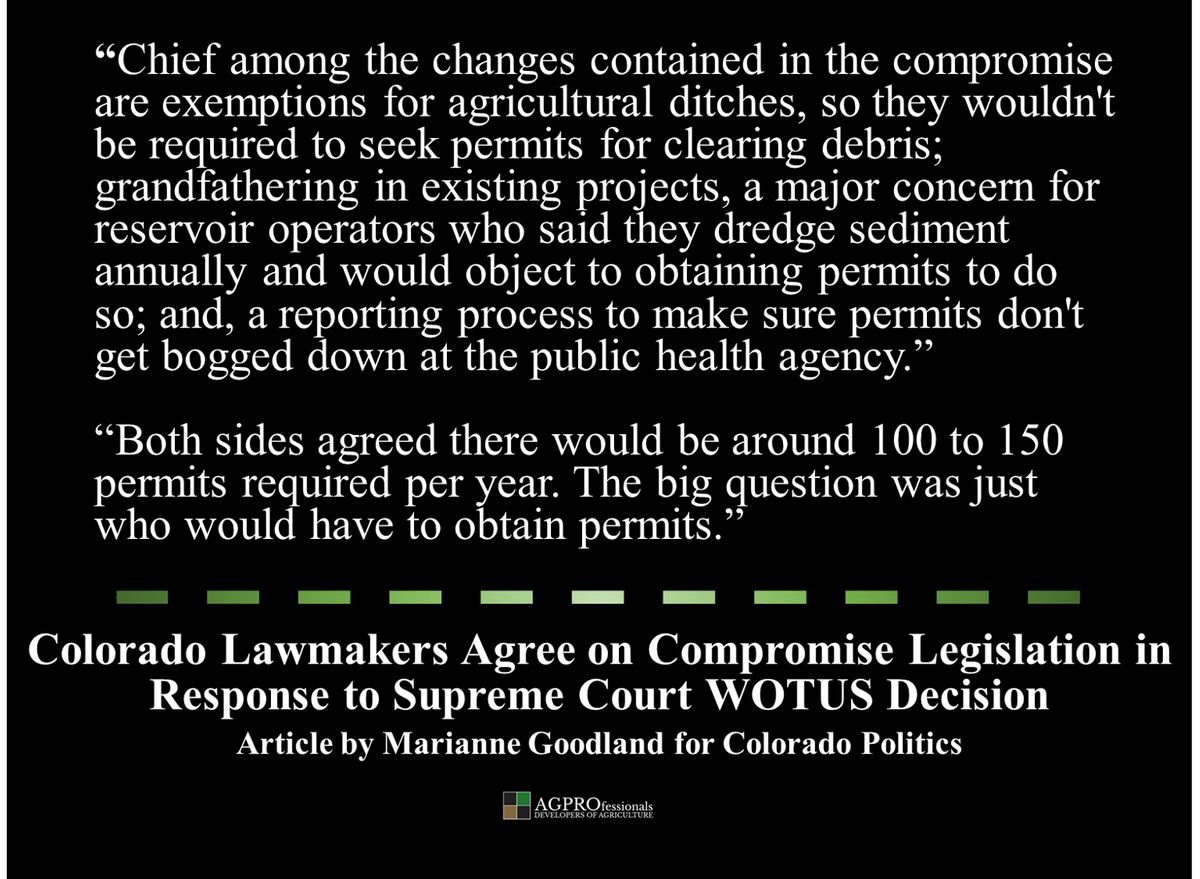Compromise - Colorado House Bill 1379
Article excerpts:
"The Senate on Monday unanimously approved House Bill 1379, the measure backed by House Speaker Julie McCluskie, D-Dillon, and Sen. Dylan Roberts, D-Summit County. It now heads to the House for review of a compromise amendment, which is expected to pass, and then head to the governor for signing.
Over the weekend, the proposal had added a significant new sponsor: Sen. Barbara Kirkmeyer, R-Weld County, the sponsor of the competing measure, Senate Bill 127.
Lawmakers have been looking at dueling approaches contained in two measures seeking to implement a way for the state to manage "dredge and fill discharge" permits tied to a recent U.S. Supreme Court decision that redefined how a body of water can be protected under the Environmental Protection Agency's "Waters of the United States" rule."
"The two measures looked nothing like each other at the beginning: House Bill 1379 sought to protect far more than the million acres of wetlands left unprotected by Sackett, while Kirkmeyer's bill, Senate Bill 137, sought to protect only the wetlands affected by Sackett.
Another major division was over who would handle the program that would require primarily construction companies and water providers to seek permits for dredge and fill activities.
"Chief among the changes contained in the compromise are exemptions for agricultural ditches, so they wouldn't be required to seek permits for clearing debris; grandfathering in existing projects, a major concern for reservoir operators who said they dredge sediment annually and would object to obtaining permits to do so; and, a reporting process to make sure permits don't get bogged down at the public health agency.
Kirkmeyer said the agency would be required to report quarterly to the Joint Budget Committee, where she is the committee's ranking Republican member, to ensure there's no backlog in permits, as well as annual reports to the governor and General Assembly."
"Both sides agreed there would be around 100 to 150 permits required per year. The big question was just who would have to obtain permits."
Link to the full article, including the details of the compromise process HERE

